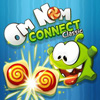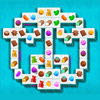On Parliament Hill
Remembrance Day 2022: Reflections on a New War in Europe
As we observed Remembrance Day this year, the spectre of war seems closer than in previous years. The world is closer today to a third world war than at any time since the Cuban Missile Crisis of 1962.
Russia’s invasion of Ukraine has brought the reality of a war in Europe closer to home for many Canadians.
Since the end of WWII there have been many military conflicts around the globe, many of them bloody and drawn out, and many in which Canadian forces played an active or supporting role. But many of these wars were smaller and regional (or even civil) in nature. Even Afghanistan, Canada’s longest and most costly war since WWII played out in a theatre which was largely unfamiliar and seemed very far away and far removed from the daily lives of Canadians.
While the spectre of Afghanistan remains with us, the war in Ukraine has brought the possibility of armed conflict home to many Canadians in a unique way. Nearly 1.5 million Canadians are of Ukrainian descent. Moreover, the reality of war in a developed European nation just feels different than the desert wars that have dominated the past half century. It shouldn’t, but it does. It feels closer to home. This has led many to advocate that we do more.
The involvement of NATO members, including Canada, in providing arms and funds to Ukraine to defend itself was the right move. However, it has also placed the western allies on a potential collision course with Russia. This is why the usual options of a no-fly zone or direct NATO support have not been exercised, as any such direct action would escalate the conflict. To date, the Ukrainians have been surprisingly successful in pushing back Russian forces towards their own border. As such, providing arms to keep the conflict contained within Ukraine is in the best interest of the world. This containment strategy has been successful in avoiding a massive, potentially nuclear conflict in the past and it is succeeding today.
That said, there is little to celebrate as thousands of Russians and Ukrainians will die, be wounded, or displaced before the conflict is over. Thousands of families will lose loved ones. Thousands will have lost their homes. And, as with all wars, those who experience it firsthand, will never be the same. There are no winners, only losers.
There is also the reality that while the war in Ukraine dominates the headlines, other conflicts continue unabated in Yemen, Syria, Myanmar, Ethiopia and elsewhere (61 current conflicts at last count). They too are experiencing the horrors of war and millions have lost their lives.
As the war rages on, the people and leaders of both Ukraine and Russia remain in my prayers. It is my hope as we approach the Christmas season that a reasonable peace can be achieved.
In the meantime, in Canada, as we watch these events unfold in real time, it is also my hope that this current war in Europe brings the reality of those we remember on November 11th to a greater clarity. Those great European conflicts in which nearly 100,000 Canadians gave their lives and hundreds of thousands more gave their youth and their innocence.
May it bring to greater clarity the plight of families, in all conflicts, who watch mothers and fathers, brothers and sisters, sons and daughters, go marching off to war, never to return.
May it drive us to be more thankful for the service of our veterans and their sacrifices, and those of their families.
May it move us to pray for peace and do all that we can reasonably do to bring about reconciliation.
I encourage all Provencher residents to pause and take a moment to reflect on all those who have served and sacrificed for Canada, those who are currently serving around the globe, and to pray for peace.




